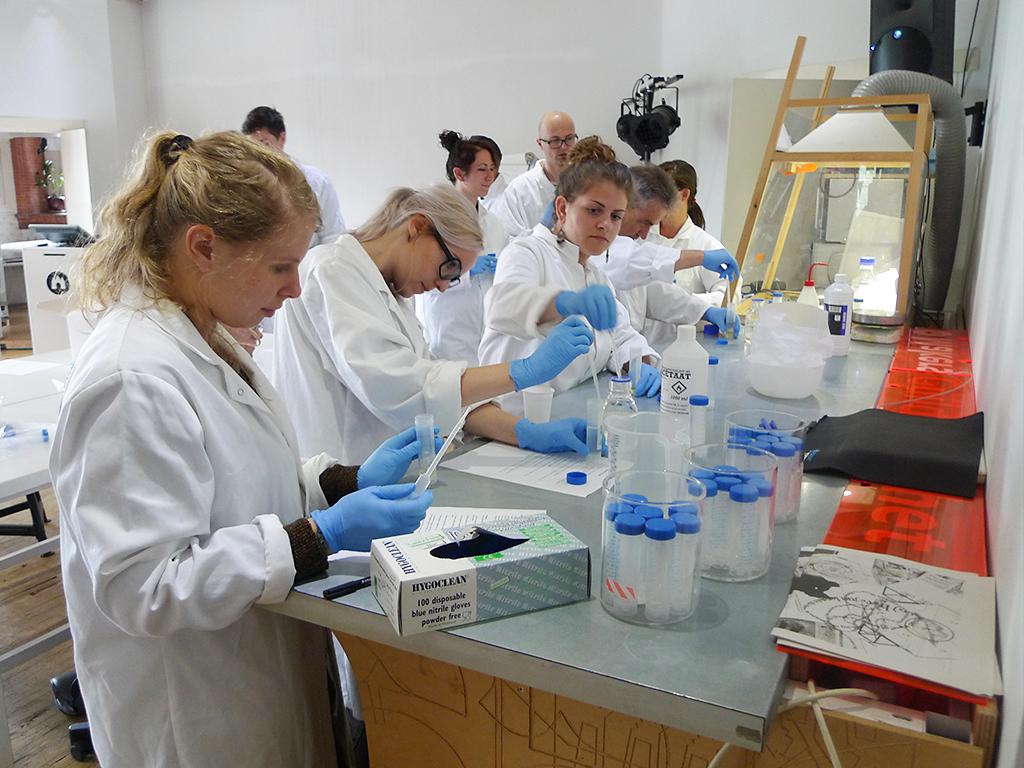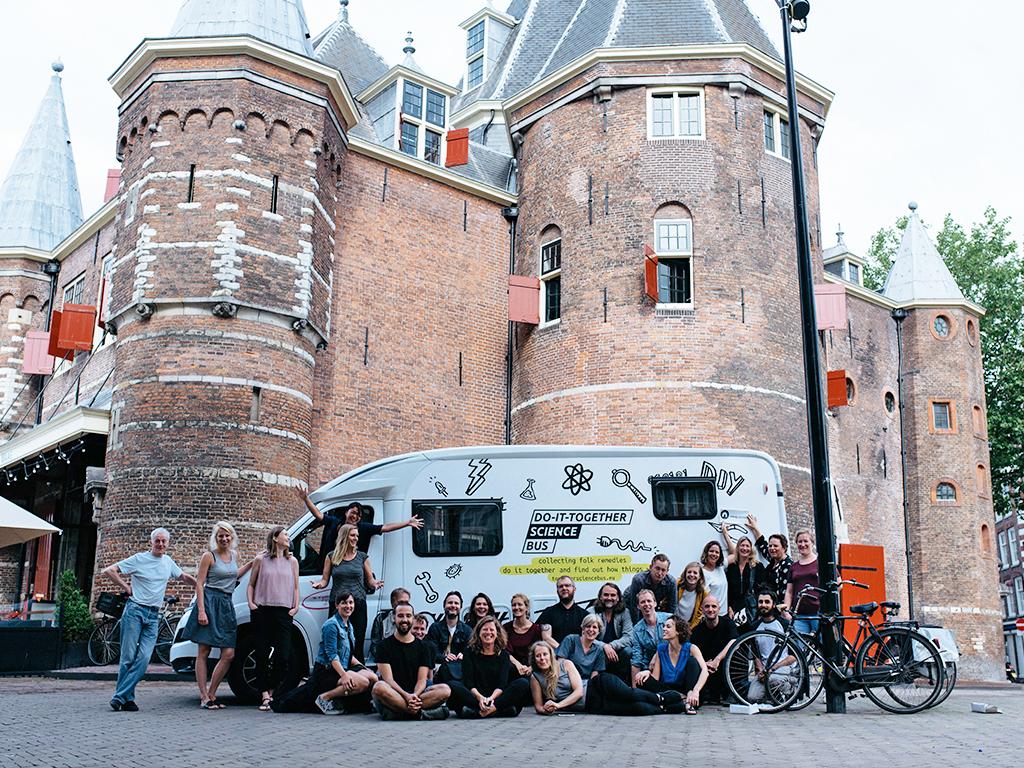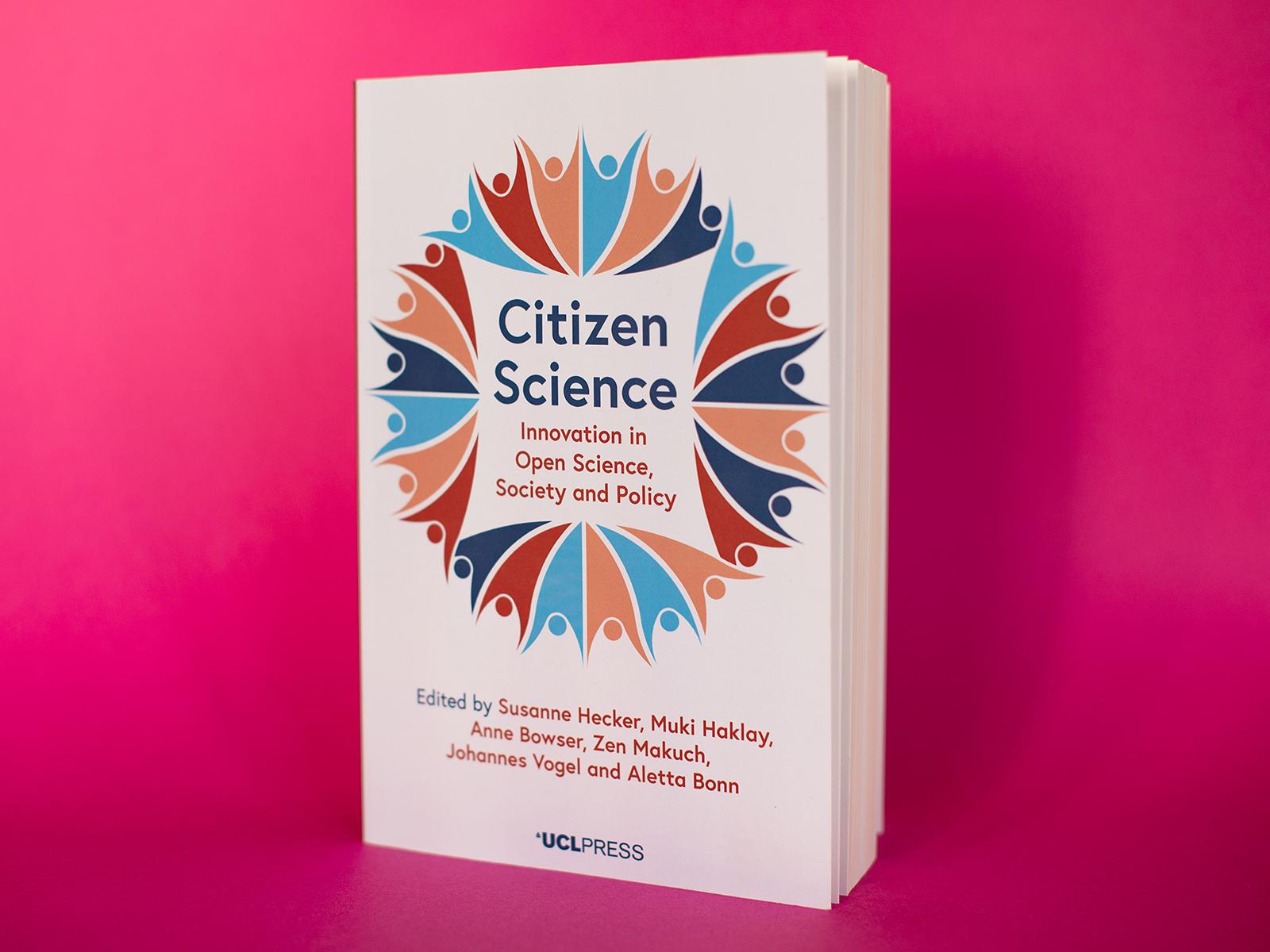Open Sourcing Human Enhancement Technologies - Workshop & panel
Waag's Open Wetlab will be present at this year's edition of the Border Sessions Festival on technology and society in The Hague, on Wednesday July 6th.
PANEL – Open Sourcing Human Enhancement Technologies – 13.00 – 14.30
Software and hardware are words used as metaphors for living bodies and how they can be coded in bioengineering and synthetic biology. Technologies such as CRISPR/Cas9 and other very precise targeting biotechnologies find applications at an extreme rapid pace enabling to cure rare diseases and modify organisms to develop and carry human organs.
Is it all that simple and if so how should the access to these technologies be democratised?
- For this matter we invited the Open Source Estrogen project represented by Mary Tsang who will tell us about the reasons behind open sourcing estrogen research, access and distribution for societal and artistic use.
- Mikael Fernström will present the Global Open Source Hardware project GOSH, an initiative that with great speed resonates within the global scientific community and beyond.
- Spela Petric and Pieter van Boheemen will present the DIY Antibiotics projects recently developed at the Open Wetlab of Waag, Amsterdam
- Media theorist Jens Hauser, whose main interest in the interaction between art and science will react on the presentations and a round table discussion will follow, moderated by Lucas Evers. Journalist and artist Ewen Chardonnet will join the round table.
WORKSHOP – DIY Human Enhancement Clinic #2:
Your Hormones – extract and deploy – 11.00 – 13.00 and 15.45 – 17.15
(Advancing the panel, up to 20 participants can participate in the workshop and extract hormones from their own urine - participants need to be over 18 yrs old).
The workshop is lead by Špela Petrič and Mary Tsang with the help of Ewen Chardonnet.
What use are hormones, to us, to others, to other species? What if you extract them yourself instead of leaving that to the pharmaceutical industry? What can you make? Cocktails, connections, corrections? In this second edition of DIY Human Enhancement Clinic, invited artists-researchers Mary Tsang and Špela Petrič will teach and tell you how and what for to isolate your own hormones, by extracting them from your urine. What can we then use these hormones for? Injecting them back into our bodies, or mixing them into a fancy cocktail? Mary Tsang and Špela Petrič will show us that hormones are not only influencing our own bodies. New ways of modifying our hormones also affects our relationships with the species around us, and these effects aren’t always as straightforward as you may think. With your own hormones in the test tube before you, we will open a discussion on human enhancement that us out of our human-centeredness.
Do-It-Yourself Human Enhancement Clinic
The DIY Human Enhancement Clinic investigates novel strategies for public engagement with new developments in biotechnology. By bringing artistic, scientific and humanities research together with the public in a hands-on space, the DIY HEC aims to create reciprocity, shared responsibility and a more humane understanding and development of technologies to enhance human kind.
Programme
11.00 – 13.00 workshop DIY Human Enhancement Hormone Extraction
13.00 – 14.30 panel Open Sourcing Human Enhancement Technologies
15.45 – 17.15 continuation workshop DIY Human Enhancement Hormone Extraction
17.30 – 20.00 Border Sessions networking drinks
20.00 – late Afterparty in Beergarten
Tickets
There are tickets available for the DIY Human Enhancement events hosted by Waag’s Open Wetlab.
DIY Human Enhancement Clinic is part of the DITOs project and supported by the European Commission.
This project has received funding from the European Union’s Horizon 2020 research and innovation programme under grant agreement no. 709443.


